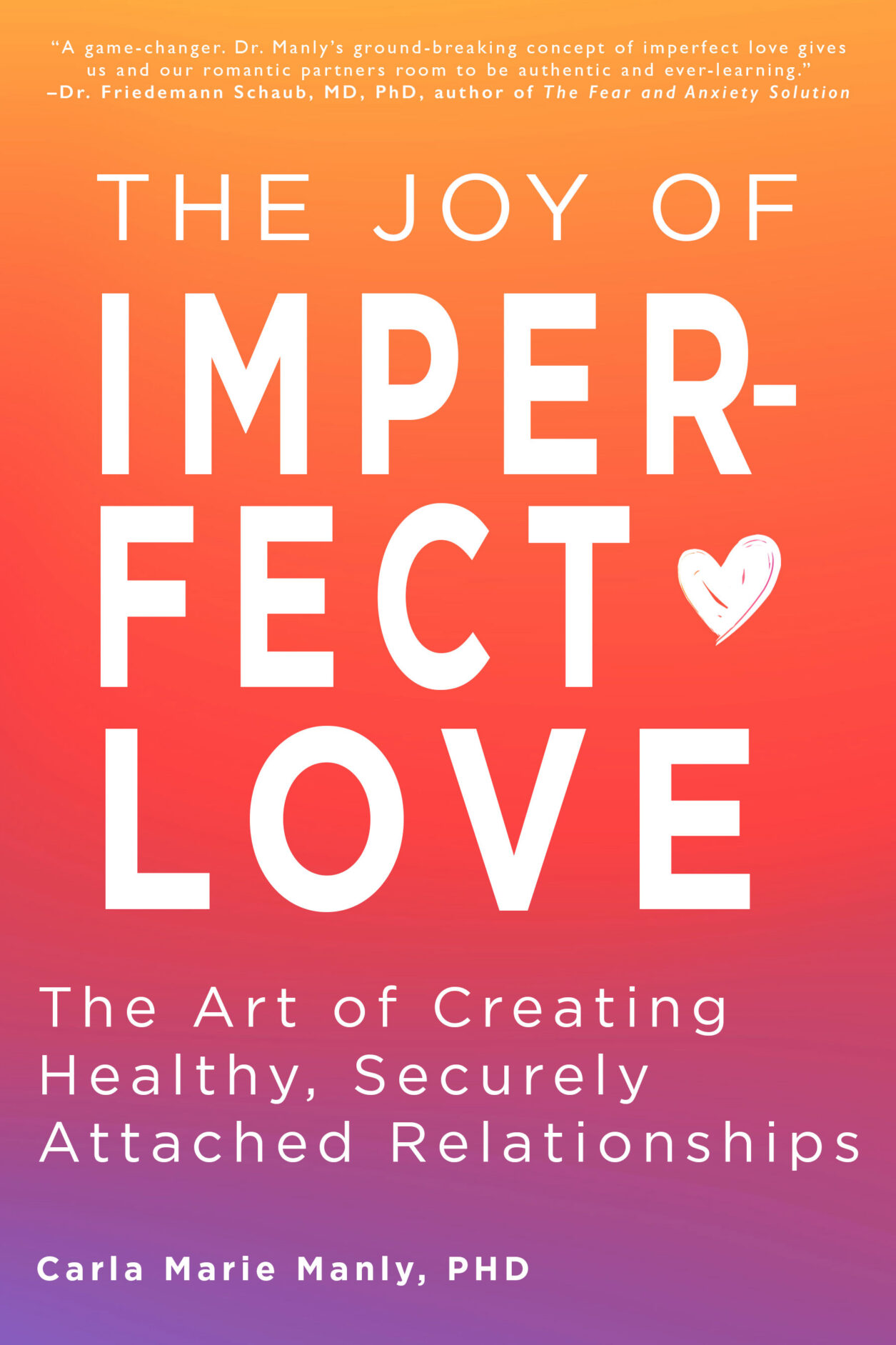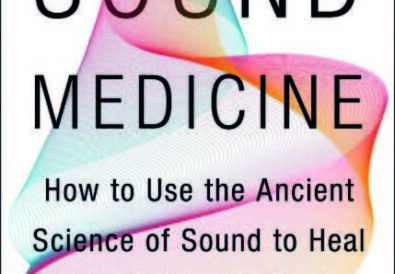If you’re craving greater balance and connection, you’ll want to embrace the joy of imperfect love. Our world is filled with promises of perfect, instant love and the prize of instant gratification. The media fills our minds with images that sell quick fixes and the idea of perfect love and perfect lives. These false offerings create stress and set us up to believe that life and love should be easy. Yet true success in both life and love takes great effort and focus. No matter how much we might desire it, perfection doesn’t exist. And in a world where nothing is perfect, there is surely no such thing as perfect love. Perfectionism suffocates the soul; the antidote is imperfect love.
We each have the power to reset and focus on creating genuine love in all our relationships, from self-love and romantic partnerships to family connections and friendships. It’s affirming to know that it’s never too late to foster love in one’s inner and external life.
My “Change Tips” offer actionable messages to help you create lasting shifts from the inside out. They’ll help you build strong self-awareness and foster genuine self-love as you discover new, freeing ways of experiencing life. We cannot love ourselves fully until we know and embrace all that we are—even as we continuously work to evolve.
Change Tip 1—Notice the Racing Mind: When your mind races, pause without judgment. Ask yourself if the thoughts are helpful. If they are, continue on your way. If they are unhelpful, choose thoughts that feel beneficial. For example, you might choose to shift your thoughts away from replaying an argument, and deliberately think about ways to engage in healthy self-care. Such shifts, although seemingly minor, allow you to increase self-awareness, compassion, and inner stillness. This illustrates how you can use imperfect self-love to find inner balance.
Change Tip 2—Notice the Critical Mind: When your inner critic arises, pause to notice it. It may remind you of a parent’s or caregiver’s negative talk. Sometimes the voice is loud and harsh. Sometimes the voice is subtler yet still toxic, weaving its way into your mind. Step back to notice the voice with curiosity. You might come to name the voice something like “The Monster” or “Cruella.” This can help you detach and choose to entertain the voice or replace it with a kind inner voice. With practice, you will differentiate your compassionate, authentic self from the negative inner voice you unconsciously adopted over time. This is an example of how you can put imperfect self-love to work in your life.
Change Tip 3—Notice Toxic Comparison: Take note when the voice of toxic comparison arises in your mind. This voice may tell you that someone is more attractive, smarter, or more successful than you. This voice may trigger your deepest insecurities. It may want you to work more, do more, or be more. This voice might want you to chase an illusory, someday-I’ll-be-perfect image that lives inside your head. What inner change might result—how much more at peace and self-accepting might you feel—if you mindfully disengage from the voice of toxic comparison? As you release toxic comparisons, your authentic inner voice will guide you into being the best version of you. This illustrates how imperfect self-love can help you be your genuine self.
Change Tip 4—Assess Your Values: Ponder the values you adopted in life. Each day, pay attention to the values that feel right to you and those that don’t. Notice if you have clarity on your values or if they are murky. The more you nonjudgmentally attend to the values that feel right to you, the more self-aware you’ll become. There is no right or wrong, only an increasing attunement to embracing values that feel beneficial and supportive to you and your path in life. This is an example of imperfect self-love working to help you know and embrace who you are.
Change Tip 5—Evaluate Your Priorities: Do find yourself saying “I want to make this a priority,” but you don’t follow through? Do you feel as if you lack a sense of direction? Do you do what others want rather than putting time and energy into your goals? Notice what you prioritize most in life, and gently attend to living in concert with your priorities. Notice how you feel when you are living in step with your priorities and how you feel when you are not. Notice if your level of self-love improves when you generally live in sync with what is truly most important to you. There is no inherent right or wrong priority in life; what’s most vital is knowing yours and striving to live in concert with them. In this way, imperfect self-love can help you become attuned to who you are and your true priorities.
Understanding and embracing these five practices of self-awareness isn’t easy; it’s an ongoing process that takes patience. Your self-love will grow as you continue to think, act, and live in ways that are congruent with what your ever-evolving imperfect self truly wants. No matter where you are now, it’s never too late to bring the power of imperfect love into your life.
This article is based on Dr. Carla Marie Manly’s captivating fourth book, The Joy of Imperfect Love.
 Dr. Carla Marie Manly is a clinical psychologist, life fulfillment expert, and author. In addition to her clinical practice focusing on relationships and personal transformation, Dr. Manly is deeply invested in her roles as a consultant and speaker. With a refreshingly direct and honest approach—plus a dose of humor—Dr. Manly enjoys supporting others in the ever-evolving journey of life. Her novel self-development paradigm builds resilience, emotional intelligence, and self-esteem. Highlighting the importance of loving connection, her work also focuses on helping others create deeply connected and satisfying intimate relationships. Working from a transformative model that honors the body-mind-spirit connection, Dr. Manly offers holistic relationship and wellness seminars around the world. Her four extraordinary books, The Joy of Imperfect Love, Date Smart, Joy from Fear, and Aging Joyfully highlight Dr. Manly’s empowering approach and profound expertise. Dr. Manly’s expertise is also regularly cited in media outlets including The Wall Street Journal, The New York Times, The Los Angeles Times, USA Today, Forbes, Oprah, Newsweek, NBC, HuffPost, Reader’s Digest, Psychology Today, Parade, GQ, Women’s Health, Architectural Digest, Men’s Health, and more.
Dr. Carla Marie Manly is a clinical psychologist, life fulfillment expert, and author. In addition to her clinical practice focusing on relationships and personal transformation, Dr. Manly is deeply invested in her roles as a consultant and speaker. With a refreshingly direct and honest approach—plus a dose of humor—Dr. Manly enjoys supporting others in the ever-evolving journey of life. Her novel self-development paradigm builds resilience, emotional intelligence, and self-esteem. Highlighting the importance of loving connection, her work also focuses on helping others create deeply connected and satisfying intimate relationships. Working from a transformative model that honors the body-mind-spirit connection, Dr. Manly offers holistic relationship and wellness seminars around the world. Her four extraordinary books, The Joy of Imperfect Love, Date Smart, Joy from Fear, and Aging Joyfully highlight Dr. Manly’s empowering approach and profound expertise. Dr. Manly’s expertise is also regularly cited in media outlets including The Wall Street Journal, The New York Times, The Los Angeles Times, USA Today, Forbes, Oprah, Newsweek, NBC, HuffPost, Reader’s Digest, Psychology Today, Parade, GQ, Women’s Health, Architectural Digest, Men’s Health, and more.




















